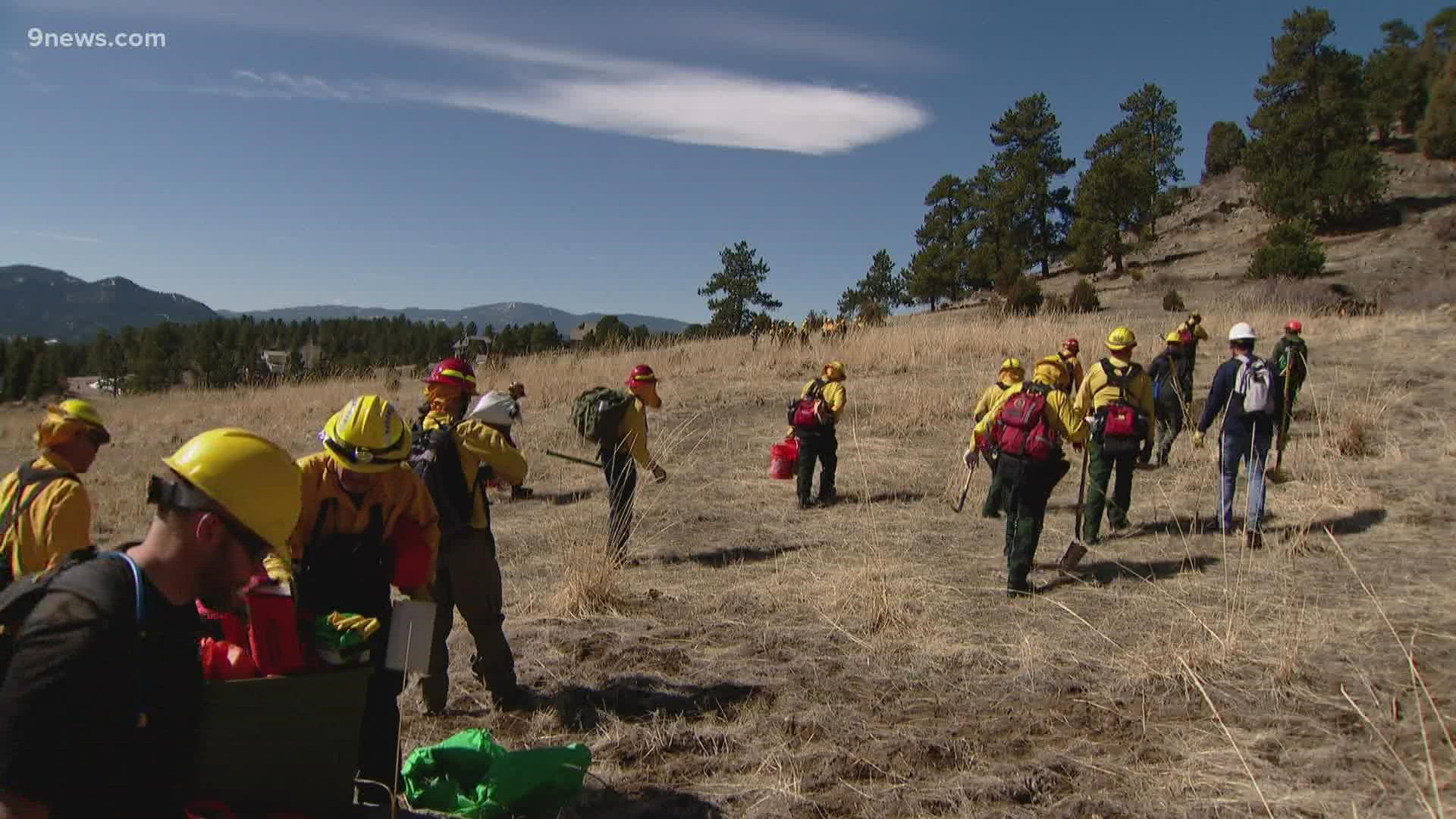GOLDEN, Colo. — Firefighters in Boulder County credited training and lessons learned from the Marshall Fire for their success in stopping last weekend's NCAR Fire from getting into neighborhoods.
That training now prepares wildland firefighters to go to work any time of the year.
On Saturday, more than 70 firefighters from different agencies were preparing themselves for the next fire that could happen at any time.
"We did initial attack on a mock fire in a meadow, a 50-acre fire that was in light fuel, grass fuels," Genesee Fire Rescue Training Chief Ryan Babcock said. "They learned their tool orders. They learned how to work safely in a big crew. They learned how to check for spot fires, like making sure that if a fire is coming through the area, if it jumps our line, where did that spot fire go? How to handle that. Then the fire is contained, how to cold trail it, which is making sure that the fire is out.”
Lt. Peter Greenstone, also with Genesee Fire Rescue, was serving as a division leader, helping to train new firefighters and practice with those who've been on the team for years. He's been firefighting for six years now.
"We're going to do a direct attack, which means we're going to be right on the line where the fire is, digging line to separate -- to put in that trench that separates the fuels," he said. “We want to make sure that within a certain distance of that line that we cut, that it’s safe and the wind's not going to pick up and just throw an ember right across and start it up again.”
The vast majority of the firefighters training are volunteers, dedicated to serving their communities and neighbors. That's how Babcock started out, 15 years ago.
"When I first started, there definitely was the winter off. We had the wintertime off of fire. We didn't have to worry about it. We could take a breath," he said. “We might get a month off here and there if we have a heavy snow, but yeah, it’s pretty much from December all the way through December.”
The potential for fires is now year-round.
“We talk a lot about preparing for heat," Greenstone said. "I got to say, I’m finding that I’ve been on a lot of fires where the main problem was how cold I was, because it was in the middle of winter and we had a fire. Like the Marshall Fire, we had to put on layers, and that’s the thing that’s changing."
Babcock said fires are also getting closer and closer to urban environments.
"Instead of the tree or the fuels on the ground burning the fire, we're seeing one house burning the next house, burning the next house," he said.
It's why training and practice continue to be important. They'll practice protecting homes, directing plane drops, fire mitigation and much more.
"Fire belongs here. It's not going away. It's going to be here no matter what, and it's going to happen here," Babcock said. “We’re in a prime environment here, so we need to make sure that folks know that, what we’re doing to help, what they can do to help us.”
Some of the firefighters at this training recently fought the Marshall Fire. While the emotional toll is high, they continue to practice and train for the next event.
"I want to make sure these people are safe. I want to help them. I want to do what I can," Babcock said.
Babcock wants to remind residents in high-risk fire areas to mitigate the fire risk to their homes as much as possible. He also said if you're ever alerted to evacuate during a fire, do so immediately.
Here are some of Babcock's tips to create defensible space:
- Clear vegetation around the house
- Put rocks around the perimeter of the house
- Replace shake shingles with concrete tile or an asphalt roof
- Remove pine needles, debris, and other things that could "fuel" a fire from your yard
- Clean out gutters
- Thin trees
RELATED: NCAR Fire now fully contained
SUGGESTED VIDEOS: Wildfires in Colorado

